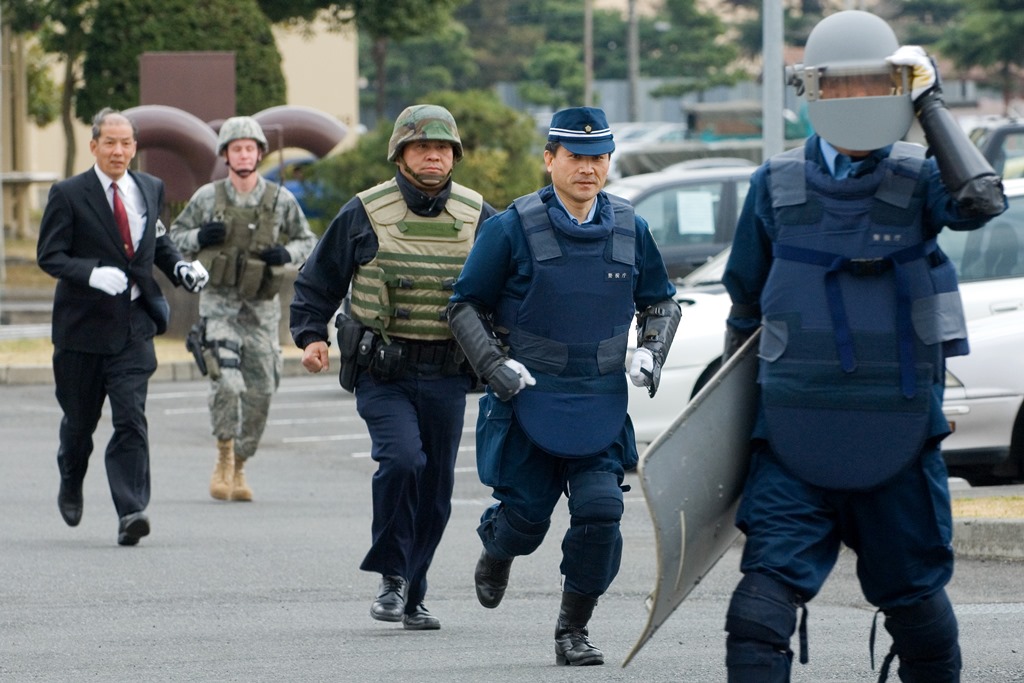Japan Times reported this early July that Japan’s Supreme Court has upheld the government’s blanket surveillance of the country’s Muslim community. The court struck down the second appeal by Japanese Muslim plaintiffs against what they perceive as an unconstitutional invasion of their privacy and freedom of religion. A 2010 leak of 114 police files revealed nationwide surveillance of Japanese Muslims. The files revealed that Muslim places of worship, halal restaurants and Islam-related organisations across the capital, Tokyo, were being monitored. The leaked files also revealed religious profiling of Muslims across Japan, included resumé-like pages listing a host of personal information, including an individual’s name, physical description, personal relationships and the mosque they attended, along with a section titled “suspicions”.
Even reported last week before the Eid prayer, some Masjids in Japan got an email from an unknown person in the form of threats and warnings. 120,000 Muslims in Japan faced increasing pressure as a result of Islamophobia. Furthermore, after the beheading incident beheading of two Japanese citizens Haruna Yukawa and Kenji Goto by ISIS in 2014. But the incident has raised significant interest from Japanese citizens to visit the Masjids in Tokyo. Shigeru Shimoyama, an Imam of Tokyo Camii Masjid could sense, the thirst of Japanese citizens for information about Islam and Muslims.
Comment:
Islamophobia in Japan cannot be separated from the anti-terrorism narrative promoted globally by Western countries. Jun Honna, a politics and security expert from Ritsumeikan University conveyed his concern about Abe’s policy last March; “My concern is Abe’s blind following of the U.S.-led global war on terrorism targeting ISIS,” Honna says. “His administration believes joining the ‘war’ club may boost Japan’s counterterrorism commitment and capacity in preparing for the G7 Summit and 2020 Olympics.”
Blanket surveillance’s policy against Muslim communities in Japan is part of Japan’s counter-terrorism program that is clearly legalized by the Japanese government. It seems clear from the stance of Supreme Court which did not weigh in on the police profiling or surveillance practices, which a lower court ruling had upheld as “necessary and inevitable” to guard against the threat of international terrorism. It’s exactly as practiced by the US government against America’s seven-million Muslim community which has been under real and virtual surveillance since 9/11. After 15 years of broadly targeting the community and extensively monitoring its activities, the FBI declared an end on June 18, 2016 to its surveillance of Muslim Americans, saying “its exhaustive study of their beautiful culture was finally complete.”
Apparently this is how secular capitalist countries treat Muslims, i.e. as a threat and second-class citizens. This clearly showed their impotence in securing Muslim citizenship rights and building their community identity. The statement “we love Islam and Muslims – it’s just the terrorists we hate” designed to socially engineer a climate where it is globally acceptable to degrade and abuse Muslims and oppose any expression of Islam. Undoubtedly, the anti-terrorist project is actually a cheap trick to propagate Islamophobia.
But above all that there is always optimism. Allah سبحانه وتعالى always had a far greater plan for the 120,000 Muslims in Japan. All the cheap tricks, labeling, stigma against Islam and Muslims actually bring blessings in disguised. Growing numbers of Japanese people are curious about Islam and Muslims. Proven visits to the mosques in Japan are increased fivefold after the incident of Kenji Goto. As the phrase from Shogeru Shimoyama, he can sense how thirsty the Japanese people for information about Islam and Muslims.
وَمَكَرُوا وَمَكَرَ اللَّهُ ۖ وَاللَّهُ خَيْرُ الْمَاكِرِينَ
“And the disbelievers planned, but Allah planned. And Allah is the best of planners.”
(Al-i- Imran: 54)
Fika Komara

